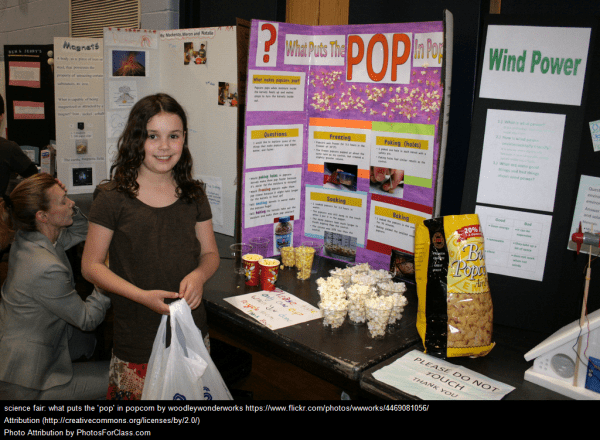 This post was co-written with Heather McPherson.
This post was co-written with Heather McPherson.
What has been your experience with science fairs? Tell us below or tweet @learnquebec.ca
Traditionally winter is science fair season and students here in Quebec and all across North America were busy putting the finishing touches on their projects – pasting their results on their display boards, rehearsing their presentations for the judges, and making sure that their design works properly or their experiment produces the required data. By mid-winter most schools have had their local fairs and the best projects are being honed for regional, national and international fairs.
We can’t imagine schools without their science fairs – they are a poster-board fixture on the school science scene. But are science fairs actually good for student learning of science? Do they motivate students to want to do inquiry-based science and pursue further studies in science? Are they worth the teacher, student and parent time and effort required? Is there research to back up the value of participation?
By its nature, science fairs require students to engage in the process of inquiry learning. Students choose a topic based on their interest. Throughout this process, the student is in complete control of the process with guidance from teachers and mentors. This is the basic precept of inquiry learning. According to Yeoman et al (2011), learning through inquiry is closely linked to high-quality practical work. Science fair projects demand inquiry skills, and they do produce high quality results from students. Every year newspapers report on the extraordinary scientific work done by young boys and girls as a direct result of the inquiry processes undertaken during their projects. Over lunch or coffee listening to the judges at the Montreal Regional Science and Technology Fair (MRSTF) or the Canada Wide Science Fair (CWSF), discussing the projects they have evaluated, one gets a sense not only of the high level of the inquiry work done but also of the palpable enthusiasm of the student scientists.
Frank LaBanca (2008) however reported that there was almost no published research on inquiry and problem learning associated with science fairs. So what do we know? Literature reports that student involvement in science fairs promotes positive attitudes about science. Laura Fisanick (2010) found that teachers believe science fairs promote students interest in science and provide opportunities for students to learn. Science fairs do have their critics however. According to a study by Abernathy and Vineyard (2001), detractors criticize:
• problems with subjective judging,
• an overemphasis on competition,
• lack of clarity with the rules,
• too much teacher control,
• too much parent control,
• mandated competition
Syer, Cassidy A. & Shore (2010) also point out that the pursuit of extrinsic rewards of marks and prizes and the often-compulsory nature of the participation can undermine any intrinsic motivation the student may have had at the outset.
Who participates in science fairs in Quebec? According to Hydro Quebec, in 2014, more than 15,000 young people took part in local, regional or in the pan-Quebec finals. Interestingly, Statistics Canada reported in 2011 that women were underrepresented in science, technology, engineering and mathematics (STEM) fields – that only 39% of STEM university graduates aged 25 to 34 were female. However in the 2013 MRSTF fully 66% of participants were female! So perhaps participation in science fair competitions can help address the gender gap in STEM disciplines in post-secondary studies. In fact some research does show that there is a positive correlation between science fair participation and future enrolment in STEM-related studies (Sahin, 2013).
Quebec has a very active science fair scene. The Educational Alliance for Science and Technology (EAST) has been organizing the MRSTF since 1983. In fact EAST also organizes robotics competitions at junior and senior levels in the Montreal area. In May 2016 EAST will be joining with the Ministry of Education and other Quebec-based groups to host the Canada Wide Science Fair at McGill University.
Science fairs require effort, time and dedication from students, teachers, mentors and organizers. They provide a real showcase for aspiring young scientists to demonstrate their inquiry skills.
References
Abernathy, Tammy V. and Vineyard, Richard N. (2001). Academic Competitions in Science; What Are the Rewards for Students? The Clearing House.
Czerniak, Charlene M., and Lumpe,Andrew T. (1996): Predictors of Science Fair Participation Using the Theory of Planned Behavior. School Science and Mathematics 96 (7) 355-61.
Fisanick, Laura. (2010). A Descriptive Study of the Middle School Science Teacher Behaviour for Required Student Participation in Science Fair Competitions. Thesis. Indiana University of Pennsylvania.
LaBanca, Frank. (2008). Impact of Problem Finding on the Quality of Authentic Open Inquiry Science Research Projects. Thesis. Western Connectiticut State University.
Yeoman, K. H., James, H. A., & Bowater, L. (2011). Development and Evaluation of an Undergraduate Science Communication Module. Bioscience Education, 17.
Sahin, Alpasian. (2013). STEM Clubs and Science Fair Competitions: Effects on Post-Secondary Matriculation. Journal of STEM Education Innovations and Research, 14 (1) 5-11.
Syer, Cassidy A. & Shore, Bruce M. (2010). Science Fairs: What Are the Sources of Help for Students and How Prevalent Is Cheating?, School Science and Mathematics, 101 (4) 206-220.

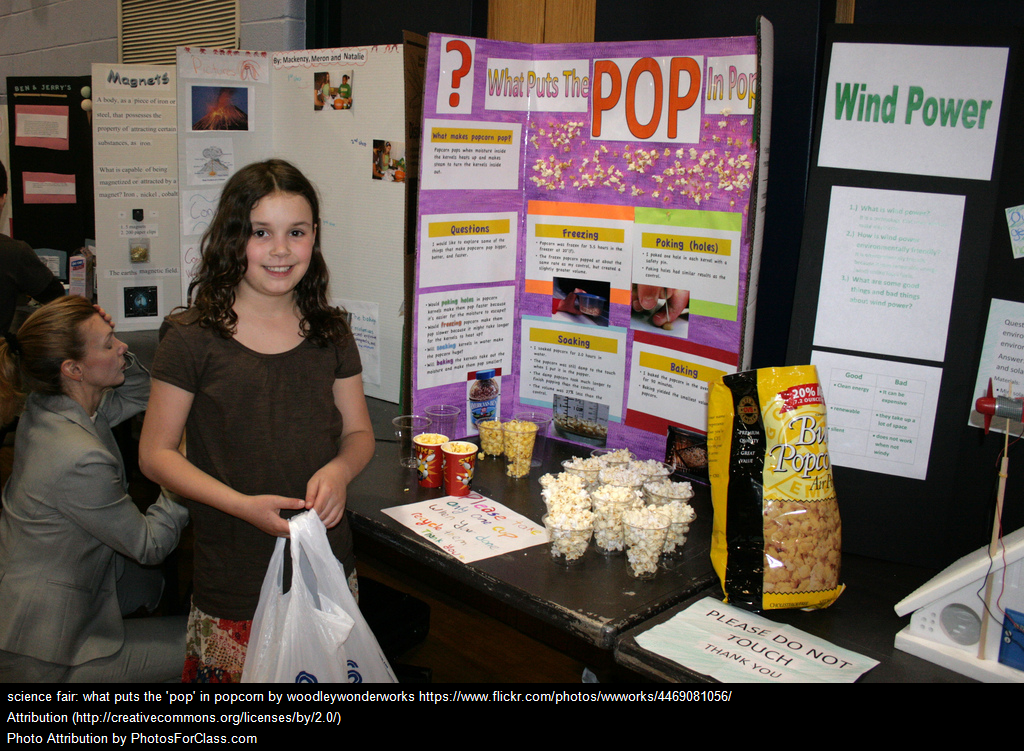
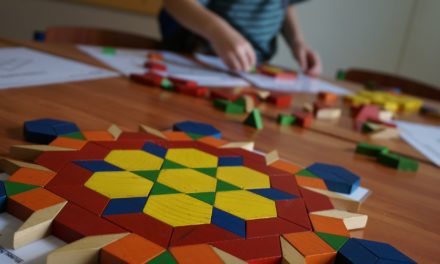
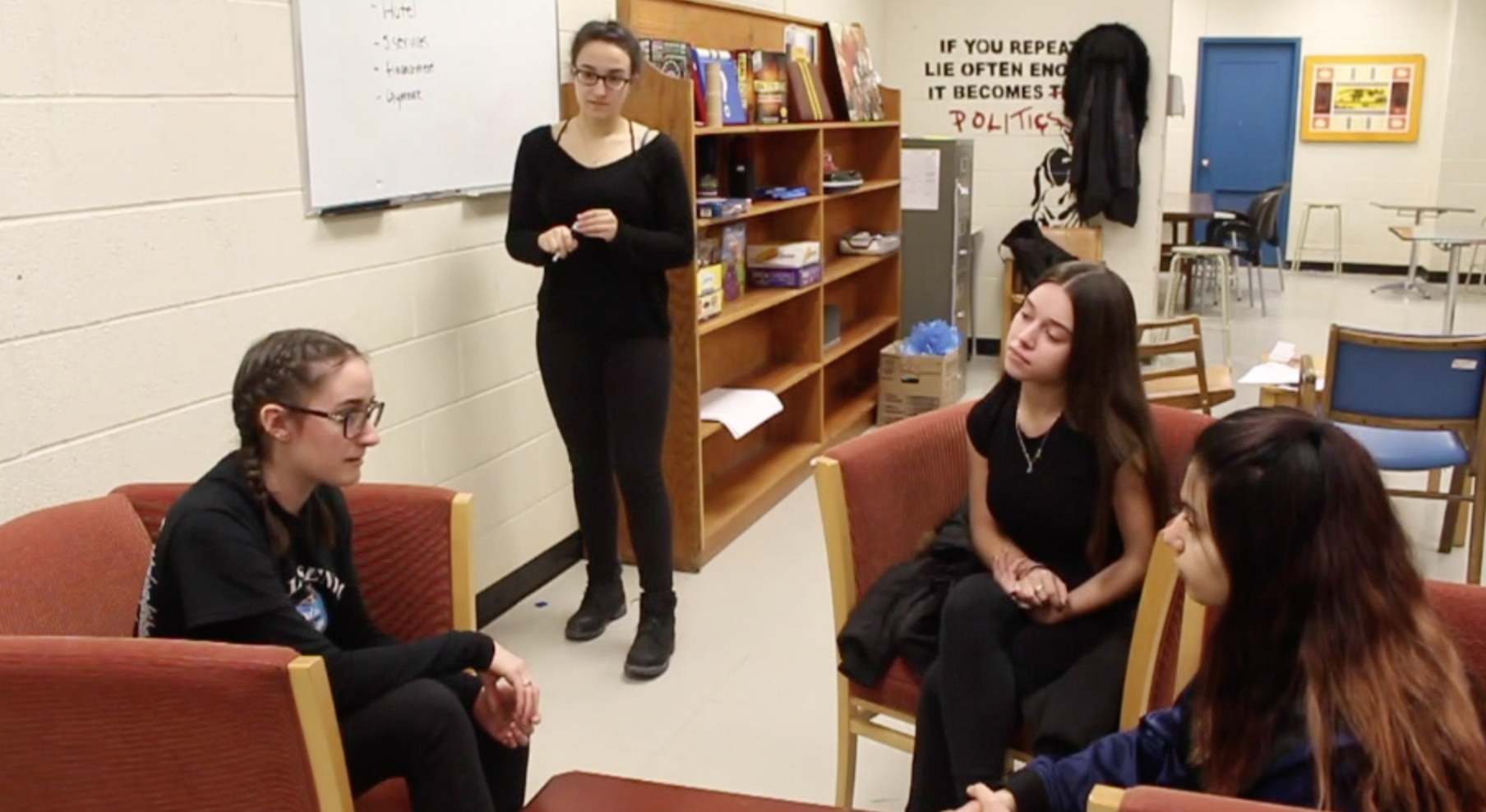
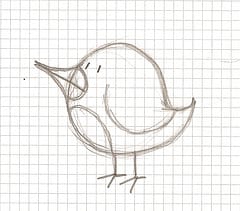
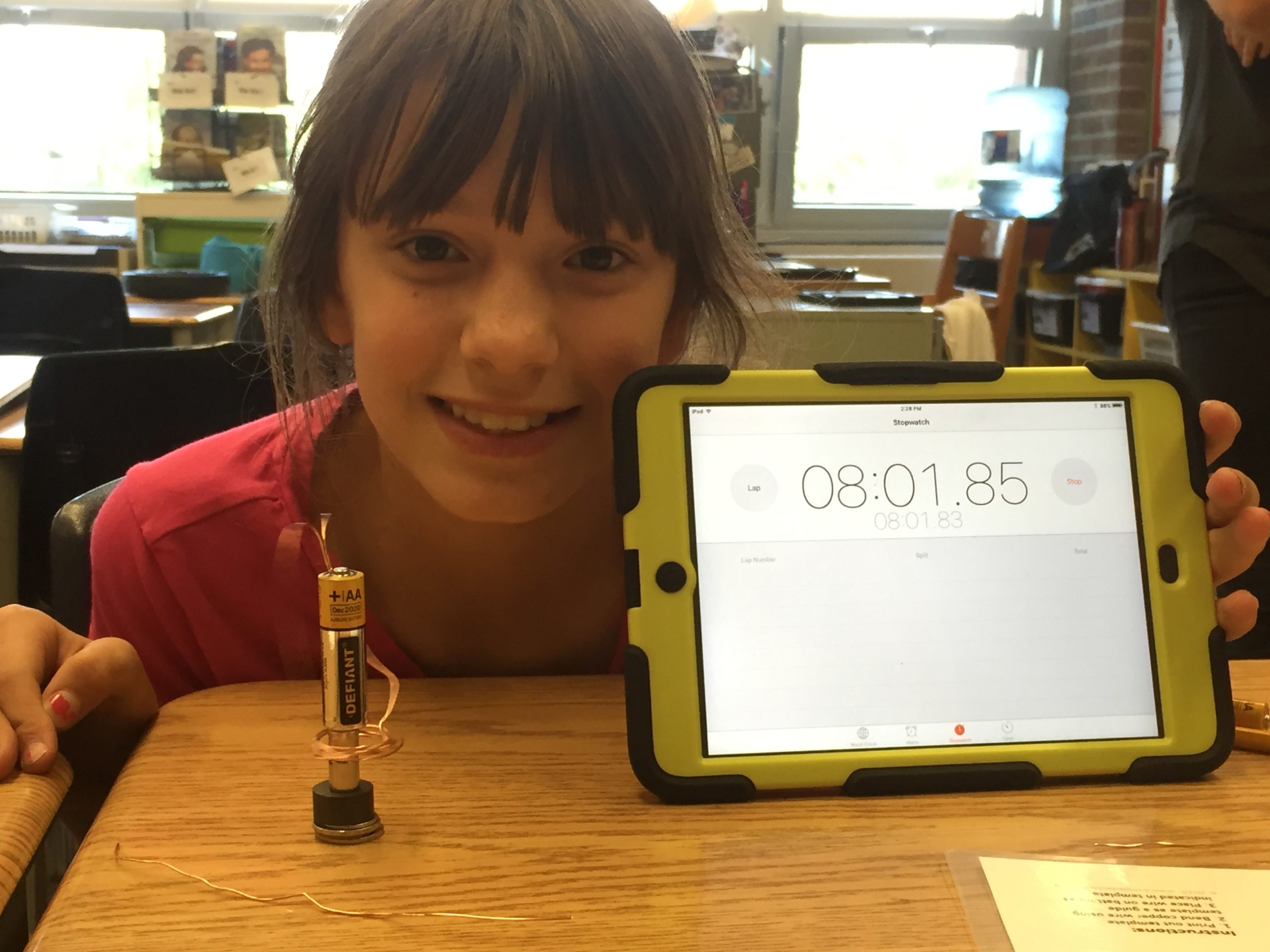
I completly agree with science fairs being good for students. It was my first year that I participated in the Montreal Regional Science Fair and I must say it was one of the best experiences of my life! It taught me many things, like how to work with statistics and graphs, how the enviroment works, how to set up a poster, booth and presentation, etc. You develop many skills throughout this process, like how to present in front of people, how to so research and organize your project, etc. The feeling I left from the fair was unexplainable, it was just amazing and I really miss it! I encourage any kid to participitate, it is alot of work, but its amazing to see what your final product it. Like the exposciences site says: “Its in you, just prove it!” Cant wait till next year!
Great article!! Science fairs definitely are great for students interested to pursue any career in such a field. They are enriching experiences which allow us to contribute to research in fields we are interested in. I have competed in the montreal regional science and technology fair twice and it has been probably the best experiences i have had. The drive and determination to continue working on such a project for such a long period of time is shocking, but you really realize quick that you constantly want to continue. It’s an ongoing process and VERY long, but always worth it. Its not always about winning or competing, for me its always been about meeting great people with similar interests in the field and most importantly broadening your knowledge as well. Both my research experiences were conducted in professional institutions and its an outstanding experience to see things from a complete different perspective. Reserach in labs is really something to experience! Working with mentors whether in lab or with a teacher really enriches what you know. The best information we can receive in the end is not solely based on what the textbook says but what people around you can inform you on and what you can learn hands on for yourself. Anybody interested in science, should really attempt to conduct their own research whether to compete or not. But is obviously great as well! Seeing the interest and the judges comments is really the final most fulfilling step in any research.
Overall, as a participant this year, I am grateful for the amazing opportunities the fair provides us. However, competition-wise, I felt as though not all students were given fair evaluations. Speaking from experience, I felt as though the judging was not a showcase of my year’s progress for the subject I feel passionate about but rather a harsh interrogation. Evaluators simply had a prejudgement that a project guided by a scientific mentor/at a professional level was undeserving of recognition. I felt as though my evaluators were disinterested in the project and only focused the judging on the amount of help I was provided by my mentors. Thus, I believed that students in my similar situation were given more recognition than I by either being dishonest or simply what seemed to be luck of having more lenient evaluators. I believe evaluators need to be more coordinated and give every student the same amount of leniency.
I’m sorry you experienced what seems like a case of reverse- discrimination. Also, the scale of the fair is such that people get judged by different individuals, which is bound to lead to a less-than-perfect evaluation of the projects. But remember that the true reward in doing a project is not the medal and accolades but what it taught you about how creative you can be as a future scientist. That skill, which can be further developed, will pay off in future endeavors.
In principle, science fair gives a student a chance to pursue what they are genuinely interested in, and it gives them a taste of what research is like with all its joys and frustrations.
But I’m not alone in lamenting the fact that there’s been a trend towards getting students professionally mentored, which is unfair to those who have to do it on their own.
It would be nice if someone would breathe some fresh air into the existing corporate-tainted format, and while they’re at it, they could change the Reform’s science-tech curriculum because it’s as dysfunctional as what we had previously.
Last fall, the government of Québec suggested to cut in the financial support to organizations supporting scientific culture like the “ExpoSciences” or the scientific magazine for young “Les petits débrouillards”. From all over Quebec, people protested against this really bad initiative. Fortunately, the Minister of Economy, Innovation and Exports, Jacques Daoust, announced that it did not retain the guidelines proposed by the department regarding support to organizations supporting scientific culture. It is a really good decision!
Thanks for this information. Hopefully we can keep not only the government funding but also support from school boards, corporations and volunteers.
I agree that a school science fair is an excellent way for students to explore topics in the science field that they are interested in.
I think the greatest confusion comes when students do not understand that a science fair project is supposed to be active! They should be planning, gathering materials, experimenting (often more than once!) and figuring out what it all means. Often teachers take over and parents end up finishing things to make the deadline. Mentoring is another issue with regards to projects being presented at the higher level. Some students don’t have access to labs or specialists to help out with students inquiries about the topics. Seems unfair for a student who has a solid, well executed but simple project. The printing of posters at the regional level is ridiculous. If you want to really compete you must have a digitally composed poster. Most students and teachers don’t have the computer skills and printing resources to produce a poster.
Our school has done a science fair for the past 5 years. We are currently looking at perhaps a science week with guest speakers.
Trying to avoid the “groans” about science fair projects. Once teachers are able to let go and guide students the process is just fantastic!
Thanks for your comments, Sharon. The science fair is such a positive event at your school. I hadn’t realized that the printing of posters was such an issue. Your idea of having a science week sounds interesting.
A science club would be a great asset to those students that don’t get support at home and to those who would benefit from the enrichment that could be garnered from attending the club. Students could come up with ideas for the fair, work on them during club time and those that felt good about what they did could enter the fair along with anyone else who chose to (even if they didn’t attend a club).
To force all kids to enter a fair can have negative effects on a greater number of kids than we imagine – especially all those who really don’t like science.